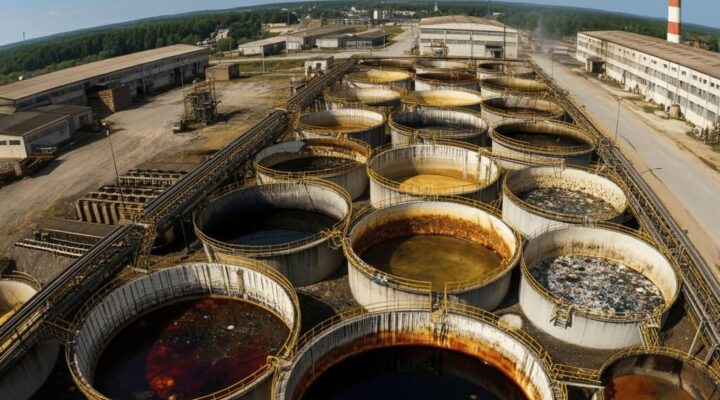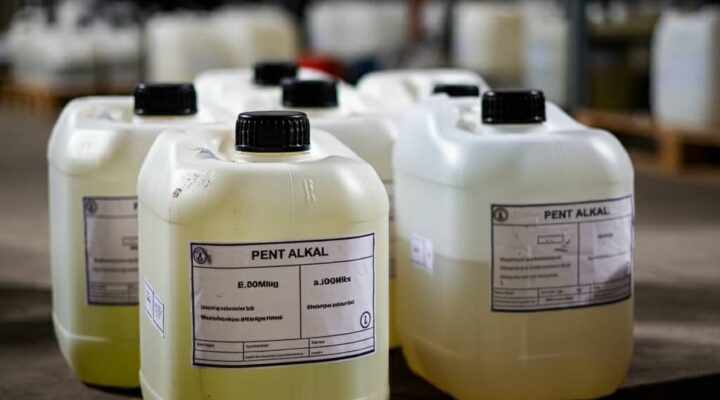As environmental consciousness continues to grow, businesses across various industries are increasingly focused on sustainability, especially in waste management. The disposal of spent inorganic acids, classified under SW206, presents both environmental and regulatory challenges. Improper disposal of these acids can cause significant damage to ecosystems and public health. However, adopting sustainable disposal methods not only mitigates environmental impact but also ensures compliance with stringent regulations. In this blog, we’ll explore how sustainable practices can be applied to spent inorganic acid disposal, and why businesses should embrace environmentally responsible waste management.
Environmental Impact of Spent Acids
Spent inorganic acids such as sulfuric acid, hydrochloric acid, and nitric acid are commonly used in manufacturing and industrial processes. When these acids are improperly disposed of, they can have devastating effects on the environment:
- Water Contamination: When acids are released into water bodies without proper treatment, they can significantly alter the pH levels of the water, making it highly acidic. This disrupts aquatic ecosystems, leading to the death of fish, plants, and other aquatic organisms. Contaminated water can also seep into groundwater, affecting drinking water supplies.
- Soil Degradation: Spent acids that are dumped or spilled onto land can lead to soil acidification, which reduces the soil’s ability to support plant life. Acidic soil can also cause heavy metals to leach from the soil, which can further contaminate water sources and affect food chains.
- Harm to Ecosystems: When spent acids reach natural habitats, they can disrupt ecosystems by killing vegetation and damaging wildlife habitats. The cascading effects of acid contamination can result in long-term environmental damage that is costly and difficult to reverse.
Sustainable Disposal Methods
- Neutralization and Recycling Options One of the most effective ways to sustainably manage spent acids is through neutralization, where acids are chemically treated to reduce their acidity. Once neutralized, the waste becomes less harmful and easier to dispose of.
Additionally, recycling spent acids can provide an environmentally friendly solution. For example, some acids, such as sulfuric acid, can be treated and reused in industrial processes, reducing the need for virgin acid production. Recycling not only cuts down on waste but also conserves resources and reduces costs for businesses. - Recovery of By-Products for Reuse In some cases, the by-products of spent acids can be recovered and reused. For instance, certain metals can be extracted from acid waste and repurposed in manufacturing. This reduces both waste and the need for raw material extraction, contributing to a circular economy and minimizing environmental impact.
- Reducing Waste at the Source Another key to sustainable waste management is reducing the amount of spent acid produced in the first place. By optimizing processes and using more efficient chemicals, manufacturers can decrease the volume of waste generated. Adopting cleaner technologies and processes also helps minimize the need for disposal, further reducing environmental risk.
Balancing Sustainability with Compliance
Incorporating sustainable disposal methods for SW206 waste not only protects the environment but also aligns with regulatory requirements. Malaysia’s Environmental Quality Act 1974 and the Scheduled Wastes Regulations 2005 mandate that businesses handle and dispose of hazardous waste, including spent acids, in a safe and compliant manner. Sustainable practices such as neutralization, recycling, and recovery meet these regulatory standards while reducing the long-term environmental footprint of the waste.
Compliance with international regulations, such as the Basel Convention, also supports sustainable waste management. These regulations ensure that hazardous waste, including spent acids, is disposed of in an environmentally sound manner. By adopting sustainable disposal solutions, businesses can maintain full compliance with both local and global regulations.
Why Choose a Sustainable Waste Management Partner?
Partnering with a waste management company that prioritizes sustainability offers numerous advantages:
- Environmental Responsibility: A company that focuses on sustainable waste disposal will help you minimize your environmental impact, enhancing your corporate social responsibility (CSR) profile. Consumers and stakeholders are increasingly concerned with how businesses manage their environmental footprint, and adopting sustainable waste practices can improve your reputation and foster trust.
- Cost Savings: Sustainable waste disposal solutions, such as recycling and recovery, can result in cost savings over time. Reducing the volume of waste and reusing materials lowers disposal costs, while also decreasing the need for raw materials in your manufacturing process.
- Regulatory Compliance: A sustainable waste management partner ensures that your business remains compliant with all relevant regulations. This reduces the risk of fines, legal actions, and operational disruptions that can arise from improper waste handling.
- Expert Guidance: Sustainable waste management partners bring expertise in the latest technologies and methods for reducing, recycling, and recovering hazardous materials. They can offer tailored solutions to meet your specific business needs and help you implement more efficient processes.
If your business generates spent inorganic acids (SW206), now is the time to explore sustainable disposal solutions. At Metahub, we specialize in eco-friendly waste management practices that help businesses reduce their environmental impact while staying fully compliant with regulations. Contact us today to schedule a consultation and learn more about how our sustainable waste management services can benefit your business and the planet.





